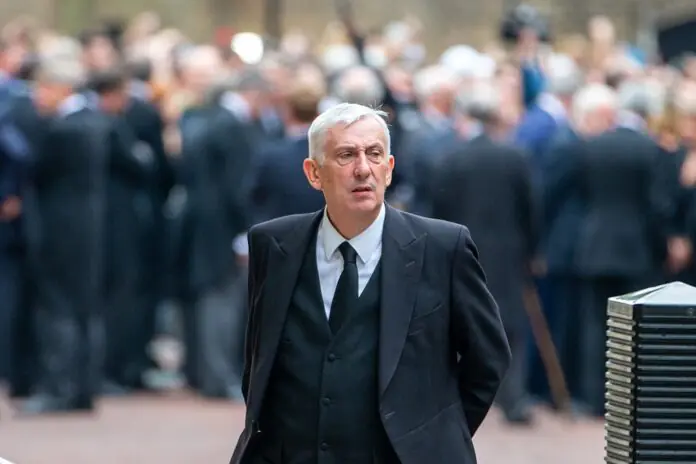Rishi Sunak expresses concerns over alterations in commons’ operations due to Gaza debate
In a dramatic twist at the heart of British politics, Speaker Lindsay Hoyle defends his position amidst growing calls for his departure. This follows Prime Minister Rishi Sunak’s voiced apprehensions regarding Hoyle’s decision related to the Gaza discussion, which marked a deviation from standard parliamentary practices.
The controversy ignited when Lindsay Hoyle, responding to what he perceived as threats against MPs, modified the Commons’ debate procedures to include a Labour amendment on Gaza. This move sidestepped the SNP’s original motion, sparking a heated debate and leading to 67 Conservative and SNP MPs pushing for a vote of no confidence in him.
Sunak, on Thursday, critiqued this alteration as “very concerning,” highlighting the paramount importance of ensuring that parliamentarians remain undeterred by extremist influences. He acknowledged Hoyle’s apology and hinted at a potential resolution, noting the Speaker’s intention to reflect on the incident.
Despite the initial uproar, the momentum against Lindsay Hoyle seemed to wane by Thursday evening. Foreign Office Minister Andrew Mitchell, while acknowledging the controversy, stated he was not advocating for Hoyle’s removal, expressing a readiness to move past the incident.
Hoyle reiterated his apology for what he termed a “wrong decision,” explaining his actions as an attempt to shield MPs from “absolutely frightening” threats. This controversy stemmed from differing motions on the Gaza ceasefire, with Labour and Conservative motions offering varied conditions alongside the call for peace.
The decision to prioritize the Labour amendment led to the withdrawal of the government’s motion, with the Labour proposal subsequently passing. This was partly attributed to the Conservatives’ lack of sufficient time and votes to push through their amendment.
While the SNP’s Westminster leader, Stephen Flynn, questioned Hoyle’s continued suitability for his role, numerous MPs, including Conservatives, voiced their support. Sir Edward Leigh and Mark Francois notably defended Hoyle, with Francois emotionally recalling Hoyle’s support following a personal tragedy.
Labour leader Keir Starmer, having lobbied for the inclusion of the Labour amendment, refuted any allegations of pressuring Lindsay Hoyle, emphasizing his advocacy for a comprehensive debate on Gaza.
This episode has underscored the complexities of parliamentary procedures and the delicate balance between ensuring robust debate and maintaining procedural norms. As the dust settles, the focus remains on the implications of this incident for parliamentary conduct and the broader discourse on democracy’s resilience in the face of external pressures.
